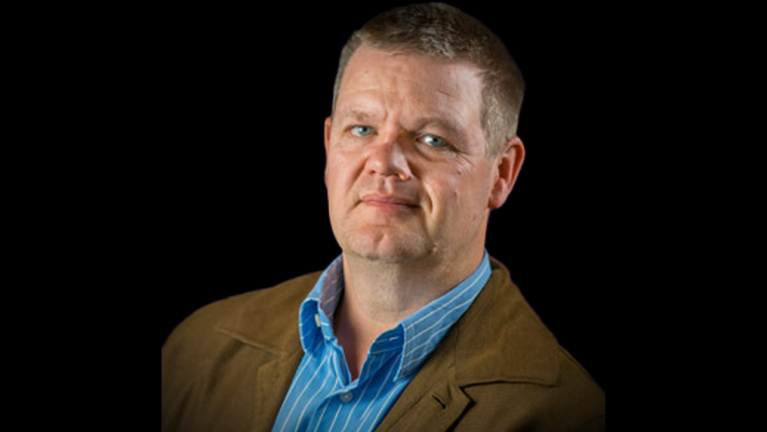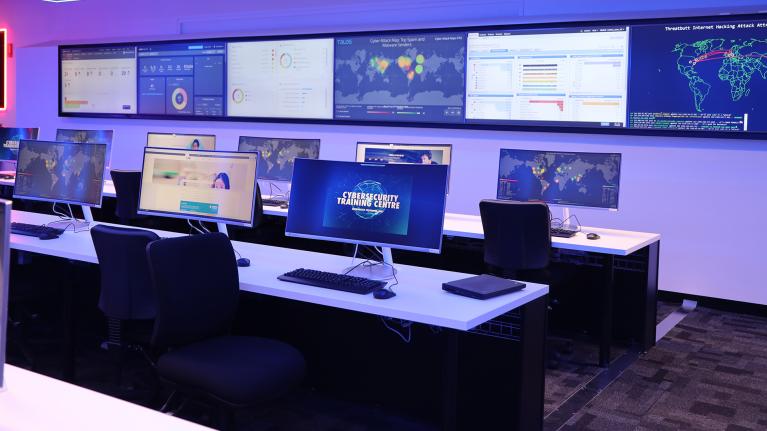Launching into cyberspace with VU: A Q&A with Brian Heatherich
An IT expert with years of experience in consulting, Brian Heatherich felt the pull towards cyber after decided to revisit his skill base – as well as reading the current climate of developing cyber threats and attacks.
Reflecting on his skills, Brian decided he wanted to develop strong technical capability in the rapidly evolving field of cyber security, and took the opportunity to upskill at Victoria University (VU).
Combining study with full-time work, he completed the Graduate Certificate in Cyber Security, and saw an opportunity to go even further in his study, completing the Graduate Diploma in Cyber Security in 2022.
After winning the VU Medal for Academic Excellence for his Graduate Certificate, Brian – who is dyslexic – shared with us how he came to study with VU, how it felt to win the VU Medal, and where he thinks the future of cyber security is heading.

Q&A with Brian Heatherich
Could you tell us a bit about your background, Brian?
I've come from a long background of IT consulting, and one of the areas that I've always struggled to gain any sort of traction in is the more technical aspects.
I knew that I needed to revisit the skill base that I had. And so when this opportunity [to do the Graduate Certificate] came up, I grabbed it. I worked full time and studied full time.
Did the VU Block Model help you balance that?
The Block Model was a real drawcard for me. As someone who's dyslexic, I find it difficult going from subject to subject.
What I really enjoyed was the fact that I could focus on just one subject, and really get an understanding of what I could do before going on to the next one.
What attracted you to VU’s cyber courses?
Knowing that there's this area of knowledge that is growing in need, that I didn't know enough about for me to be confident in, as well as the Block Model, were drawcards.
The other thing which attracted me to VU was many other universities offer purely technical cyber courses, while VU cyber courses offer more breadth. They provided a really good context around cybersecurity at a wider level, including even things like the legal aspects of cybersecurity, which no other university that I looked at actually did.
Did you study in the VU City Tower?
Yes – because of COVID I only attended one subject in person, but it was at the City Tower, which is absolutely magnificent. It is such a great learning environment, which was good because it was where I studied the most technical and difficult subject.
You won the VU Medal for Academic Excellence for your Graduate Certificate – congratulations! Could you tell us how that felt?
At school, in a traditional learning environment, I was always at the lower quartile if not the last. And when you've been forced to sit these standardised tests, they all start to contribute to who you think you are. The idea of achieving the highest mark was so foreign to me, you might as well have told me I won the lottery.
So, winning the award challenged that concept that I’m no good at traditional academia. And winning it is also a nice testament to the overall effort I put in during the Certificate and Diploma.
How you think workplaces and learning institutions could better support dyslexia?
Traditionally, dyslexia is very underrepresented in the workplace. Better support could come by offering different ways of learning. In my case, I learn best by working on assignments, and perform less well on exams.
VU has commenced this alternative by introducing a Block Model that allows someone like me to solely focus on one subject over a number of intense weeks. I think this has really assisted me in this case.
Workplaces should also assess their hiring processes and job descriptions to ensure jobs are designed to take the greatest advantages of the strengths of neurodiverse people. And, finally, recognise that they are on a shared journey with neurodiverse employees and go back and ask, “how are we doing?” – engaging in an honest conversation to help in building a culture of diversity and inclusion.
There’s a big shortfall of workers within cyber security, because it's such a rapidly growing sphere, with more and more instances of attacks. Where do you see this area going?
From a career in cyber perspective, the threat is just increasing over time. We’ve got the previous Government’s $9 billion package to bolster cybersecurity and intelligence last year. Australian Signals Directorate are looking at growing their workforce as part of the national security initiative’s planned recruitment of thousands of people. They're already behind; they can't get enough people.
And the other really big growth area will be the connection between business risk, and the technical side of cyber – that bridge is where the gap is appearing. And that's what I'm aiming for, with my background skills. I feel that that there's a very few people who can do both.
Thanks for telling us your story. Could you comment on your VU experience as a whole?
VU has provided a really beautiful and different experience. In terms of choosing cyber security: if you’re someone who loves learning, who love different experiences and keeping up with the technology, it's a career for you.
